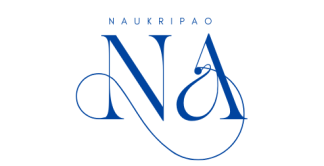
Career Objective or Resume Objective Samples: A Comprehensive Guide
A resume career objective is a concise statement that highlights your professional ambitions, skills, and what you bring to the table for potential employers. Positioned at the top of your resume, it serves as your elevator pitch to recruiters, setting the tone for the rest of your application. Crafting an effective career objective can significantly enhance your chances of standing out in a competitive job market.In this blog, we’ll explore the importance of a resume career objective, tips for crafting one, and provide examples tailored to various industries and experience levels.
What is a Resume Career Objective?
A resume career objective is a short paragraph—usually 2-3 sentences—that summarizes:
- Who you are (your current role or qualifications)
- What you aim to achieve in your next role
- How your skills align with the company’s goals
This section is particularly useful for:
- Entry-level job seekers
- Career changers
- Professionals returning to the workforce
- Individuals targeting specific roles or industries
Why is a Resume Career Objective Important?
- First Impression: It’s often the first thing recruiters see on your resume.
- Clarity: Provides a snapshot of your goals and qualifications.
- Customization: Tailored objectives demonstrate alignment with the company’s needs.
- Differentiation: Helps you stand out in a crowded job market.
Tips for Writing an Effective Resume Career Objective
1. Tailor it to the Job
Customize your objective for each application by aligning it with the job description. Use keywords from the job posting to make it relevant.
2. Be Concise
Keep it brief—2-3 sentences are enough. Avoid lengthy explanations or unnecessary details.
3. Highlight Your Value
Focus on how your skills and experiences can benefit the company rather than solely stating your personal goals.
4. Use Action-Oriented Language
Incorporate strong action verbs and specific achievements to convey confidence and capability.
5. Avoid Clichés
Phrases like “hard worker” or “team player” are overused. Instead, provide concrete examples of your skills or accomplishments.
Structure of a Resume Career Objective
A well-crafted career objective typically includes:
- Who You Are: Mention your current role, education, or years of experience.
- What You Want: Specify the position or industry you’re targeting.
- What You Offer: Highlight key skills, achievements, or certifications that align with the role.
Example Formula:
“Experienced [Job Title] with [X years] of expertise in [Skill/Industry]. Seeking a [Position] at [Company Name] to leverage my [specific skills] and contribute to [company goals].”
Resume Career Objective Examples
General Objectives
- “Motivated professional with 5+ years of experience in project management seeking to enhance operational efficiency as a Project Manager at XYZ Corp.”
- “Recent graduate with a degree in Marketing eager to apply my creativity and analytical skills as a Marketing Associate at ABC Company.”
Industry-Specific Examples
1. Information Technology (IT)
- Entry-Level: “Recent Computer Science graduate skilled in Python and JavaScript seeking a Software Developer role to build innovative solutions.”
- Experienced: “Results-driven IT professional with 7+ years of experience in cloud computing and cybersecurity seeking to optimize IT infrastructure at DEF Inc.”
2. Finance
- Entry-Level: “Dedicated finance graduate with strong analytical skills seeking a Financial Analyst position to support strategic decision-making.”
- Experienced: “Seasoned financial planner with 10+ years of experience in wealth management looking to drive revenue growth as Senior Financial Advisor at GHI Ltd.”
3. Marketing
- Entry-Level: “Creative marketing enthusiast with expertise in social media strategy seeking a role as Digital Marketing Specialist to boost brand engagement.”
- Experienced: “Innovative marketing manager with 8 years of experience driving successful campaigns eager to lead strategic initiatives at JKL Agency.”
4. Human Resources (HR)
- Entry-Level: “Passionate HR graduate skilled in talent acquisition seeking an entry-level HR Assistant role to foster positive workplace culture.”
- Experienced: “People-centric HR manager with 12 years of experience in employee relations aiming to enhance talent development strategies at MNO Corp.”
5. Engineering
- Entry-Level: “Goal-oriented Mechanical Engineer with internship experience in product design eager to contribute innovative solutions as Junior Engineer.”
- Experienced: “Electrical Engineer with 15+ years of expertise in renewable energy systems seeking a leadership role at PQR Energy Solutions.”
6. Sales
- Entry-Level: “Dynamic sales graduate skilled in customer relationship management looking for an entry-level Sales Representative position.”
- Experienced: “Top-performing Sales Manager with a proven track record of exceeding targets by 20% annually seeking to drive revenue growth at STU Enterprises.”
Specialized Scenarios
1. Career Changers
“Experienced educator transitioning into corporate training roles, leveraging 10+ years of teaching expertise and curriculum development skills.”
2. Returning Workforce
“Seasoned marketing professional re-entering the workforce after a career break, eager to apply advanced digital marketing strategies at XYZ Corp.”
3. Geographic Relocation
“Operations Manager relocating to Delhi NCR seeking opportunities in logistics management where I can apply my expertise in supply chain optimization.”
4. Internal Promotions
“Current Sales Associate with 3 years at ABC Ltd., aiming for advancement into Sales Manager role to lead high-performing teams and drive market expansion.”
Common Mistakes to Avoid
- Being Too Vague: Avoid generic statements like “Looking for a challenging role.”
- Using Jargon: Keep language simple and accessible.
- Focusing Solely on Yourself: Balance personal goals with how you can add value.
- Overloading Details: Stick to key points; avoid listing every skill or achievement.
- Neglecting Customization: Generic objectives fail to capture attention—always tailor them.
Final Thoughts on Crafting Your Resume Career Objective
A compelling resume and career objective can set you apart from other candidates by clearly communicating your goals and value proposition upfront. Whether you’re an entry-level applicant, an experienced professional, or transitioning careers, tailoring this section can make all the difference. Remember:
- Keep it concise yet impactful.
- Align it with the specific job and company.
- Highlight what makes you unique as a candidate.
By following these guidelines and using the examples provided, you’ll be well-equipped to craft an objective that captures attention and increases your chances of landing an interview!
